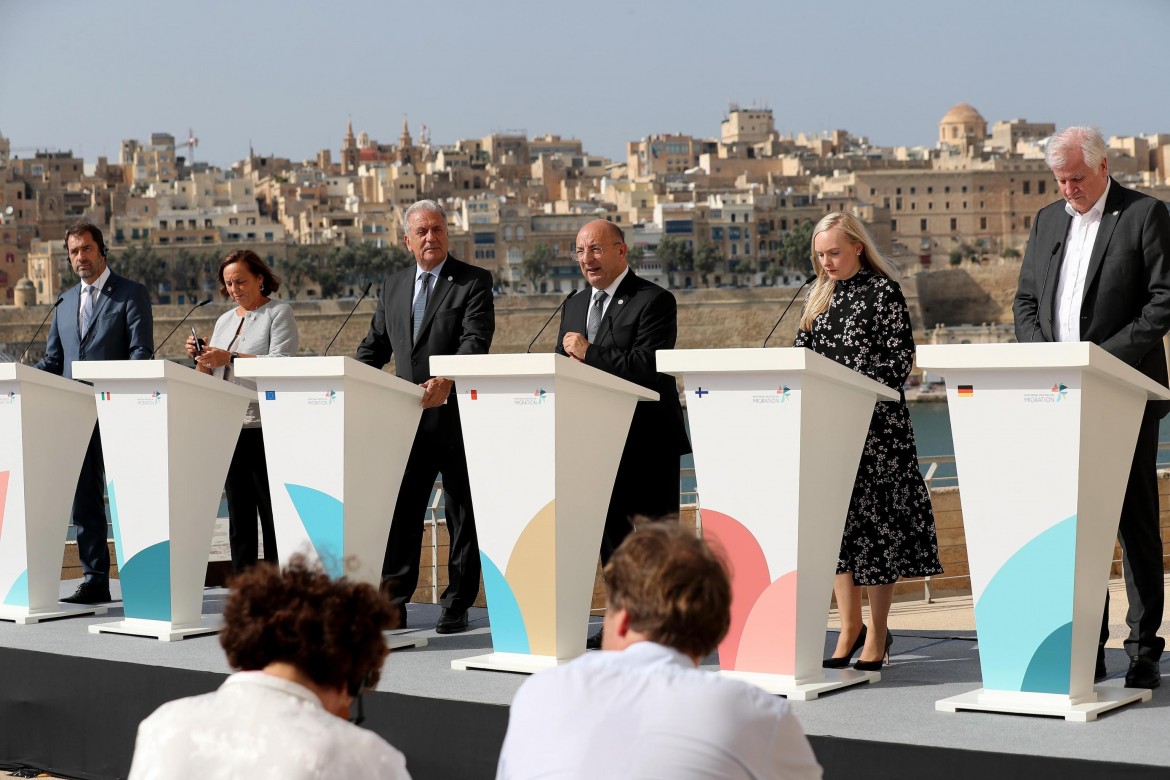Commentary
The Malta summit on migrants was mostly a media spectacle
Malta and Italy will no longer leave rescue vessels stranded on the high seas. Although this is a welcome step, it’s not a net gain: we simply return (somewhat) to compliance with international law.

The summit Monday in Malta among “willing” governments started off from completely false assumptions. This is why it was, in the end, nothing more than a media event. However, one can find positive aspects to it, especially taking into account that Italy and Malta will no longer be forcing vessels operating rescues in the central Mediterranean to be stranded on the high seas for days or weeks at a time.
The agreement marks a return to the days when boats conducting rescues were not being hindered in carrying the shipwrecked to the nearest safe harbor.
That is no small feat, but it does not mean much for Europe as a whole—rather, if actually implemented, this will be merely an opportunity to return to acting in accordance with international law. It is a turn which marks an important watershed, an end to the period of state-sponsored racism that characterized the tenure of the previous head of the Interior Ministry.
It is, however, only a partial return to legality, because the statements of the new Italian Interior Minister ended with praises sung to the so-called “Libyan Coast Guard” and its “work.” We’ve also heard the Prime Minister say the same words of praise within hours of the murder of a Sudanese man by none other than the same “Coast Guard.” Furthermore, the optimism on display by the summit participants is hardly justified if one looks at the concrete issue of the management of incoming migration flows, given that the issue of revising the Dublin Regulation has been remanded to the summit of the Interior Ministers in October, whose positions on the issue are well known.
It is also important to point out that the agreed-upon split in terms of numbers, which covers only shipwreck survivors, will also have to be squared with the much larger numbers of sea arrivals, mostly on the Spanish and Greek coasts. (See the data for 2019 here. The current numbers are 6,579 for Italy, 2,260 for Malta, 37,183 for Greece and 20,914 for Spain.) Thus, it will be necessary to involve the Spanish and Greek governments as well.
It is also crucial to highlight that the discussion about the management of incoming migration flows by sea (and otherwise) is taking place on the basis of the false premise that we are now being confronted with extraordinary migration flows. Everyone involved takes this false presupposition for granted, and it continues to be the main argument to justify the denial of rights, the criminalization of immigration, and the allocation of resources to Libyan militias dressed up as a Coast Guard, which Italy and Europe rely on to implement mass rejections.
Actually, the extraordinary migration flows—meaning those which are unexpected because they arise from wars, conflicts, persecutions and environmental disasters—are increasing on the global level, but in Europe they have been in decline for years.
Indeed, for a long time, nobody has cared to manage even the expected migration flows, for work or job searches. So one cannot have any justification to be outraged that human traffickers are the ones who end up managing the flows, because the states have declined to do so for some time.
On the issue of repatriation, it’s better to stress that there are no magic formulas, and that the numbers will remain the same, because this is not a solution to the problem of irregular migration. The solution lies in providing forms of entry which make a job search possible and making these available in adequate numbers, setting up individual pathways to gain legal status and allowing the exit from the system of those who have a job or a condition of sufficient inclusion which would justify granting them a residence permit.
Furthermore, in addition to all these obvious contradictions underpinning Monday’s media event in Malta, it is important to stress that there is a war going on in Libya, and that much of this discussion is about people arriving from that country. The fact is that there are 5,000 prisoners being held in Libyan camps, managed by militias empowered by Italian and European electoral racism, and the right thing to do would be to decide to evacuate them in a few days and redistribute them to willing countries, including Italy. These are small numbers: they are human beings who can, and must be, saved. Their lives must come before propaganda.
Originally published at https://ilmanifesto.it/un-vertice-soprattutto-mediatico/ on 2019-09-24
